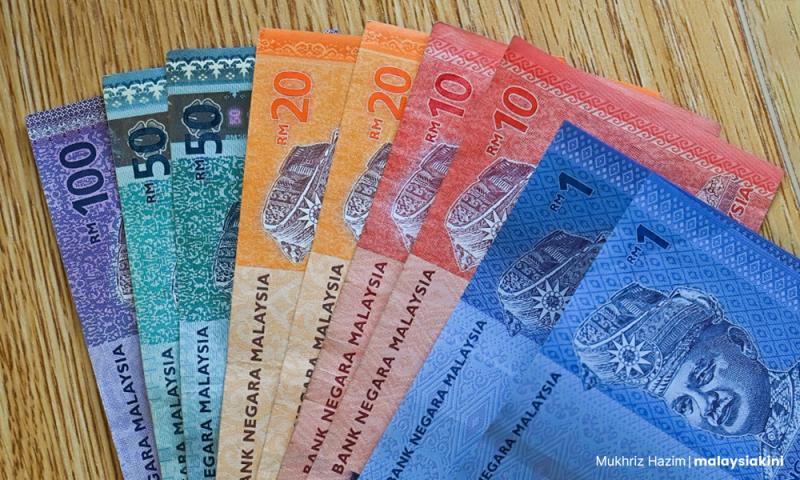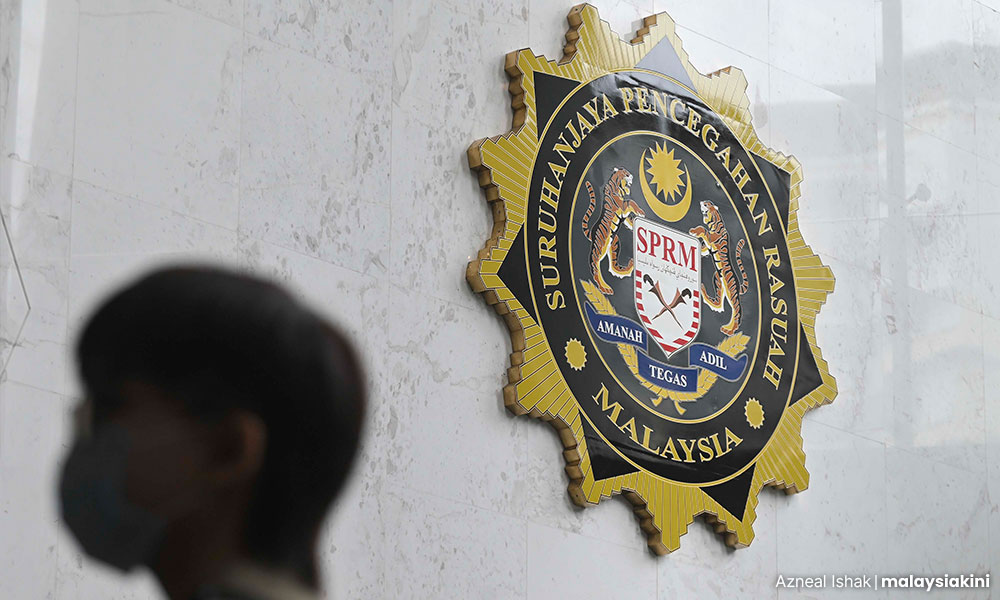
R Nadeswaran
COMMENT | In July 2005, the chief executive officer of Singapore’s National Kidney Foundation (NKF) TT Durai sued Singapore Press Holdings (SPH) for defamation following a newspaper article detailing a lack of transparency and accountability in the foundation’s usage and acquisition of funds.
The trial led to public disclosures about numerous malpractices and financial mismanagement in the NKF and subsequent government investigations into its misconduct. The affair also resulted in increased public concern over the regulation and transparency of charitable organisations.
In England, Oxfam - a charity that operates around the world - was embroiled in a “hypocrisy” row after it paid one worker at least £340,000 (RM 1.9 million) in 2022 - almost three times Oxfam boss Danny Sriskandarajah’s salary in the same year.
Closer to home, in 2012, I investigated the Malaysian Paralympic Council (MPC) after RM3.8 million of its funds were used for unapproved high-risk investments by its then-president Zainal Abidin Abu Zarin.
This was done through a company called Paralimpik Ventures, in which Zainal and his two sons were majority shareholders. The money was said to have been channelled as an “investment” to a company in the US.
Subsequently, the money became “irrecoverable” and the MPC was unable to contact the US company.
Four years later, a donor sued two officials of a national sports body, claiming that the latter had used funds other than for purposes it was intended for.
The Kuala Lumpur Sessions Court ordered Malaysian National Cycling Federation president Abu Samah Abd Wahab and his former deputy to pay RM288,300 to the Sime Darby Foundation over a breach of a sponsorship agreement involving a cycling race team.
COMMENT | In July 2005, the chief executive officer of Singapore’s National Kidney Foundation (NKF) TT Durai sued Singapore Press Holdings (SPH) for defamation following a newspaper article detailing a lack of transparency and accountability in the foundation’s usage and acquisition of funds.
The trial led to public disclosures about numerous malpractices and financial mismanagement in the NKF and subsequent government investigations into its misconduct. The affair also resulted in increased public concern over the regulation and transparency of charitable organisations.
In England, Oxfam - a charity that operates around the world - was embroiled in a “hypocrisy” row after it paid one worker at least £340,000 (RM 1.9 million) in 2022 - almost three times Oxfam boss Danny Sriskandarajah’s salary in the same year.
Closer to home, in 2012, I investigated the Malaysian Paralympic Council (MPC) after RM3.8 million of its funds were used for unapproved high-risk investments by its then-president Zainal Abidin Abu Zarin.
This was done through a company called Paralimpik Ventures, in which Zainal and his two sons were majority shareholders. The money was said to have been channelled as an “investment” to a company in the US.
Subsequently, the money became “irrecoverable” and the MPC was unable to contact the US company.
Four years later, a donor sued two officials of a national sports body, claiming that the latter had used funds other than for purposes it was intended for.
The Kuala Lumpur Sessions Court ordered Malaysian National Cycling Federation president Abu Samah Abd Wahab and his former deputy to pay RM288,300 to the Sime Darby Foundation over a breach of a sponsorship agreement involving a cycling race team.
The unprecedented lawsuit claimed unaccounted use of a portion of the RM1.96 million in funds given by the foundation to sponsor the seven-man cycling team.

The defendants could only justify the proper spending of RM1.6 million of the total sponsorship funds. Some of it was used for administrative purposes.
Last month, the MACC said it had frozen 41 bank accounts linked to Aman Palestin and several other companies following the investigation into the charity organisation’s alleged misappropriation of RM70 million.
The MACC also said it raided Aman Palestin’s premises to acquire documentation regarding the organisation’s financial activities and operations spanning the last five years.
Subsequently, it seized four gold bars, but the organisation, through its lawyers argued that the company was allowed to invest in such commodities.

Citing its company constitution, Aman Palestin’s lawyer Mohd Rafique Rashid Ali said its board of directors is allowed to invest in several ways and denied there was a misappropriation of funds.
Who’s in charge?
So, who governs or oversees such organisations? Not exactly none, but not effectively ensuring they keep a straight and narrow line when it comes to money.
Most charities and NGOs are registered as societies under the Societies Act and hence come under the purview of the Registrar of Societies (ROS), but others are registered under the Companies Act.
Both must submit their audited statements of accounts to the authorities - the ROS or the Registrar of Companies.
In many countries, they come under statutory bodies like the Charities Commission that do not dictate how they carry out their fund-raising activities or regulate their income and expenditure.
Such commissions expressly state that groups must exercise vigilance in accepting donations when the donors are unknown or unfamiliar with the charities.
Charities should also be vigilant when donors request part of the donations be redirected to unknown third parties for purposes that are unrelated to the charities’ objectives.
Laws state that charities have a legal obligation to file suspicious transaction reports if they know or have grounds to suspect that the transaction that they are dealing with is connected to criminal activity.
Some requirements include performing reasonable due diligence checks on donors to ascertain the legitimacy of the source of funds or donations received, especially when a substantial amount of donation is received from an unfamiliar or unknown donor.
All these are aimed at preventing charities from being used for money laundering or other illicit activities.
Regulatory body needed
In the aftermath of the MACC action against Aman Palestin, NGOs have called for the setting up of a charities commission in Malaysia in response to growing calls for increased transparency and accountability in managing charity funds.

They said such a commission would instil greater public confidence in making donations to charitable causes as it would serve as a regulatory body overseeing donations and funds for NGOs.
They argue that NGOs could also be required to follow key performance indicators set by the commission to obtain government funding for their projects.
Companies and the public would have greater confidence in donating money to charities knowing the commission would oversee accountability for the collection and disbursement of funds, and ensure the funds are spent on projects with a positive impact on society.
Previously, the police also called for NGOs collecting funds for humanitarian causes to be scrutinised and audited, following complaints about the legitimacy of some groups.
Bukit Aman Commercial Crimes Investigation Department director Ramli Yoosuf said these NGOs should be regulated by a government agency to ensure the funds collected reach the intended recipients.
They have spoken and our country badly needs one, but who is listening?
R NADESWARAN is a veteran journalist who writes on bread-and-butter issues. Comments: citizen.nades22@gmail.com

No comments:
Post a Comment